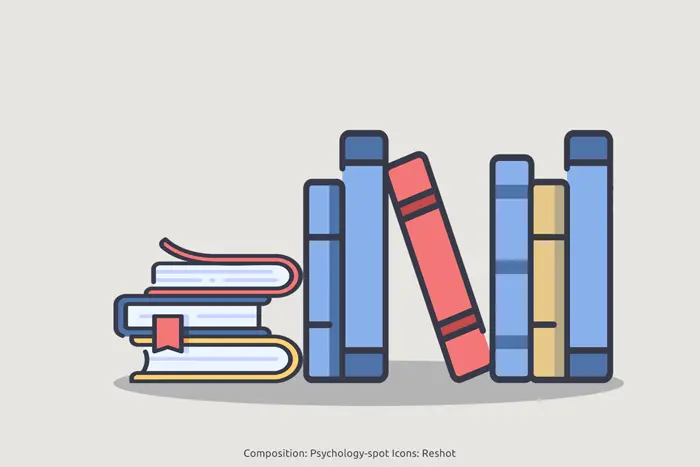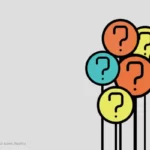
Opinions fly like poisoned darts. Ad hominem attacks become commonplace. Reactivity flourishes in a society that seems increasingly sensitive and intransigent.
Much of the daily attacks that occur on social networks, the unbridled anger that certain words arouse or the condemnation of certain writings actually have a simple explanation: a lack of reading comprehension. We live in a society that understands less and less and express more and more opinions.
Reading comprehension in free fall
From time to time, the Organization for Economic Co-operation and Development (OECD) analyzes the level of intellectual development of the people who live in the 38 countries that make it up and prepares the report “Skills Outlook”. One of the skills analyzed is reading comprehension.
Reading comprehension is the capacity that allows us to understand, evaluate and consciously use written texts to participate effectively in society, achieve our objectives or simply expand our knowledge and deploy our potential.
Reading comprehension also includes other simpler skills, from decoding written words and phrases to understanding, interpreting and evaluating them. To do this, we need to implement complex thought processes such as synthesis, analysis, comparison, generalization, and inferences.
However, our reading comprehension has been in free fall for a long time. The results of the latest OECD report showed that in most countries there are alarming proportions of adults with very low language proficiency.
Only 0.7% of adults have a high level of reading comprehension; that is, it is “Able to integrate information from different texts, synthesize similar or contradictory ideas or points of view, evaluate evidence-based arguments. Evaluate the reliability and sources of the information, as well as detect rhetorical resources or make inferences”.
In contrast, between 4.9 and 27.7% of adults show an extremely basic level of competence, although there are differences between countries. Spain and Italy are at the bottom, with the worst scores.
In Spain, for example, 7.2% of adults have a very low level of reading comprehension, followed by Italy (5.5%) and France (5.3%). Nations like the United States and the United Kingdom are also below average in reading comprehension.
These people are only able to read and understand short texts on topics that are familiar to them. And they can only answer questions about reading if they find the textual answers, which means that no real information processing takes place.
We read less, faster and more superficially
A study by the Pew Research Center revealed that nearly one-third of adult Americans have not read an entire book in the past year. To put these figures into perspective, it is enough to think that they triple the numbers reported in 1978. In other words, in 1978 people read much more than we do now.
Of course, just because reading comprehension is declining doesn’t mean people can’t read or aren’t reading. After all, we now read more emails, text messages, web pages, and short articles in digital media.
But it’s not the same…
A study conducted at the Showa University School of Medicine revealed that students perform better on reading tests when they read the passage on paper, rather than using a smartphone, regardless of the type of information.
These researchers found that reading on a smartphone generates higher prefrontal activity, which could indicate a higher cognitive load; that is, it demands more effort than reading on paper.
Without a doubt, technology has changed our reading habits. Perhaps we read more, but in a more superficial way. We jump from one medium to another, from one piece of news to another, from one comment to another… We just read titles and skim over the information, believing that we have learned or understood the author’s point of view when it’s not. In fact, research conducted at the University of Texas found that sharing an article on social media makes us feel more informed, even if we haven’t even read it.
The interactivity of digital media and the continuous stimuli we are exposed to online often lead us to other sites, causing us to lose track of what we were reading to fall into a kind of informational black hole. That speed, when consuming information, prevents us from processing it properly. It is as if we continually add data without worrying about evaluating its reliability or making sense of it. We consume information but we do not convert it into knowledge.
But it’s not all technology’s fault…
Cognitive laziness, emotional reactivity and lack of empathy: the explosive cocktail of ignorance
Reading comprehension problems are not only due to the misuse of technology. Obviously! They also have a social root. We live in a fast-paced world where immediacy is rewarded, so sometimes we feel that we don’t have time to read an entire article, get in-depth information, or delve into the context.
Thus we plunge into cognitive laziness.
Thinking takes effort and time, so we just get carried away by already established mental patterns. We do not strive to understand. And the more complex the issues, the more laziness becomes acute and the more mental shortcuts we take.
Thus the desire and ability to read longer and more sophisticated texts decreases, as well as to understand the ideas that the authors try to convey. We lose the ability to put ourselves in the writer’s place and try to understand what he/she wanted to say.
Although when reading a text we cannot escape the influence of our experiences and our way of understanding life, in recent times we have lost the reading empathy necessary to understand who is writing. Thus we end up breaking the bridges of dialogue that allow the creation of the essential complicity between the author and the reader.
We no longer even ask ourselves if we have understood the words correctly or could have misinterpreted them, we simply turn our opinion – which will always be biased since we do not know the reality of the author – into a critical judgment with which we publicly stone or extol.
And worst of all, that reactivity is often just based on bits of information taken out of context that activate our emotional triggers. Reading ceases to be a fundamentally reflective activity to become a hurried and reactive activity. We do not read to understand but to react. We do not read to broaden our vision of the world but to judge.
As Steven Mintz, a professor of history at the University of Texas, noted, “As the proportion of the population entering college has grown, the proportion of students with advanced reading skills has declined, encouraging professors to reduce the reading requirements.”
Thus we have plunged into a downward spiral where we have sacrificed reflection on the altar of immediacy. As a result, it is not surprising that we have a population that is more educated but less capable of understanding. More “informed” but less reflective. With more studies, but less empathy. With the fullest mind and the emptiest sensitivity.
Sources:
Honma, M., Masaoka, Y., Iizuka, N., Wada, S., Kamimura, S., Yoshikawa, A., Moriya, R., Kamijo, S., & Izumizaki, M. (2022). Reading on a smartphone affects sigh generation, brain activity, and comprehension. Scientific Reports; 12(1): 1589.
Gelles, R. & Perrin, A. (2021) Who doesn’t read books in America? In: Pew Research Center.
Batini, F. et. Al. (2013) OCSE: Skills Outlook. In: OECD.
Moore, D. W. (2005) About Half of Americans Reading a Book. In: Gallup.



